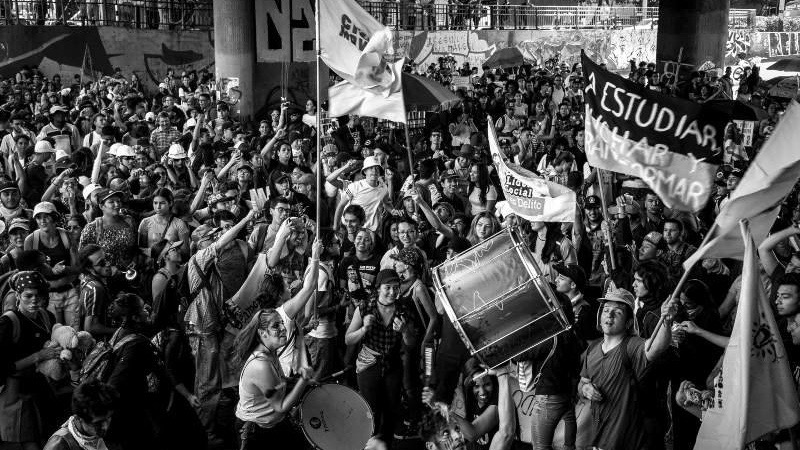The streets of Colombia were once again witness to massive mobilizations by diverse sectors of society on January 21, marking two months since the beginning of the popular uprising against president Iván Duque. The rise in assassinations of social leaders, the scandal involving the army carrying out illegal wire-tapping, and the neoliberal economic measures passed by the Colombian government in the midst of heavy protests in December were some of the factors that brought Colombians to the streets.
Mobilizations with artistic interventions, music, blockades of public transportation and major roads, and pot-and-pan banging were carried out in Colombia’s major cities such as Bogotá, Cali, Medellín, Pamplona, Bucaramanga, Cúcuta and others. Police attacked students and youth mobilizing in the southern part of Bogotá.
The national strike was called for by the National Strike Committee which is made up of diverse social movements, Indigenous, Afro-descendant, and peasant organizations, trade unions, student organizations and other collectives. The National Strike Committee had originally had drafted a 13-point list of demands that was presented to the government, but after deliberations and discussions within the committee, the list has grown.
The key points, however, remain such as the withdrawal of the anti-people neoliberal economic policies including the tax reform passed in December; the immediate dissolution of the Mobile Anti-Disturbance Squadron (ESMAD), the special police unit responsible for the death of dozens of protesters since its formation in 1999; the implementation of effective measures to halt the genocide of social leaders, human rights defenders and ex-combatants; a serious committment by the government to implement the peace agreements signed between the Revolutionary Armed Forces (FARC) and the National Government in 2016; and the reinitiation of peace talks with the National Liberation Army (ELN).
Mobilizations against the far-right government of Iván Duque are expected to continue and organizations are undertaking new and creative ways of channelizing the outpouring of energy seen in the past two months to continue the momentum.





